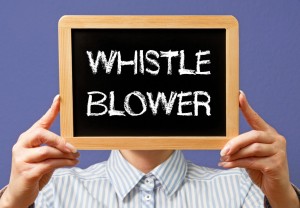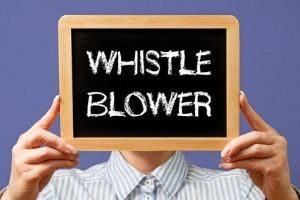 While some whistleblowers experience guilt, others are struggling with anger. Frequently, those who submit a whistleblower complaint to the Securities and Exchange Commission (SEC) have been wronged. This wrongdoing may manifest financially, emotionally, or both.
While some whistleblowers experience guilt, others are struggling with anger. Frequently, those who submit a whistleblower complaint to the Securities and Exchange Commission (SEC) have been wronged. This wrongdoing may manifest financially, emotionally, or both.
Importantly, the SEC does its part to incentivize whistleblowers by offering the opportunity to financially recoup some of their losses. Those who provide “original information” to the SEC, which leads to a successful action and monetary sanctions exceeding $1 million against the wrongdoer, are entitled to an award. While eligible whistleblowers will be awarded a percentage of the sanctions recouped, this award is not the primary motivation behind blowing the whistle to begin with. Continue reading
 Let me be clear: Retaliation protections are a key component of the whistleblower program, and we will bring charges against companies or individuals who violate the anti-retaliation protections when appropriate.
Let me be clear: Retaliation protections are a key component of the whistleblower program, and we will bring charges against companies or individuals who violate the anti-retaliation protections when appropriate. SEC Whistleblower Lawyer Blog
SEC Whistleblower Lawyer Blog


 Suppose you’re aware of violations of securities laws at your place of employment but you are concerned that an employment agreement may prevent you from becoming a whistleblower. In that case, it’s always best to consult with an attorney.
Suppose you’re aware of violations of securities laws at your place of employment but you are concerned that an employment agreement may prevent you from becoming a whistleblower. In that case, it’s always best to consult with an attorney. The Securities and Exchanges Commission (SEC) has been awarding millions of dollars to whistleblowers in recent years—and the Commission has been awarding larger bonuses, more frequently. In the first decade of the SEC whistleblowing program, it had awarded $942 million to whistleblowers—but more than a third of that
The Securities and Exchanges Commission (SEC) has been awarding millions of dollars to whistleblowers in recent years—and the Commission has been awarding larger bonuses, more frequently. In the first decade of the SEC whistleblowing program, it had awarded $942 million to whistleblowers—but more than a third of that While some whistleblowers experience guilt, others are struggling with anger. Frequently, those who submit a whistleblower complaint to the Securities and Exchange Commission (SEC) have been wronged. This wrongdoing may manifest financially, emotionally, or both.
While some whistleblowers experience guilt, others are struggling with anger. Frequently, those who submit a whistleblower complaint to the Securities and Exchange Commission (SEC) have been wronged. This wrongdoing may manifest financially, emotionally, or both. After you and your legal team have filed a whistleblower complaint with the SEC, it may feel anticlimactic. When the
After you and your legal team have filed a whistleblower complaint with the SEC, it may feel anticlimactic. When the “
“ Of course, if you become a
Of course, if you become a  For would-be
For would-be